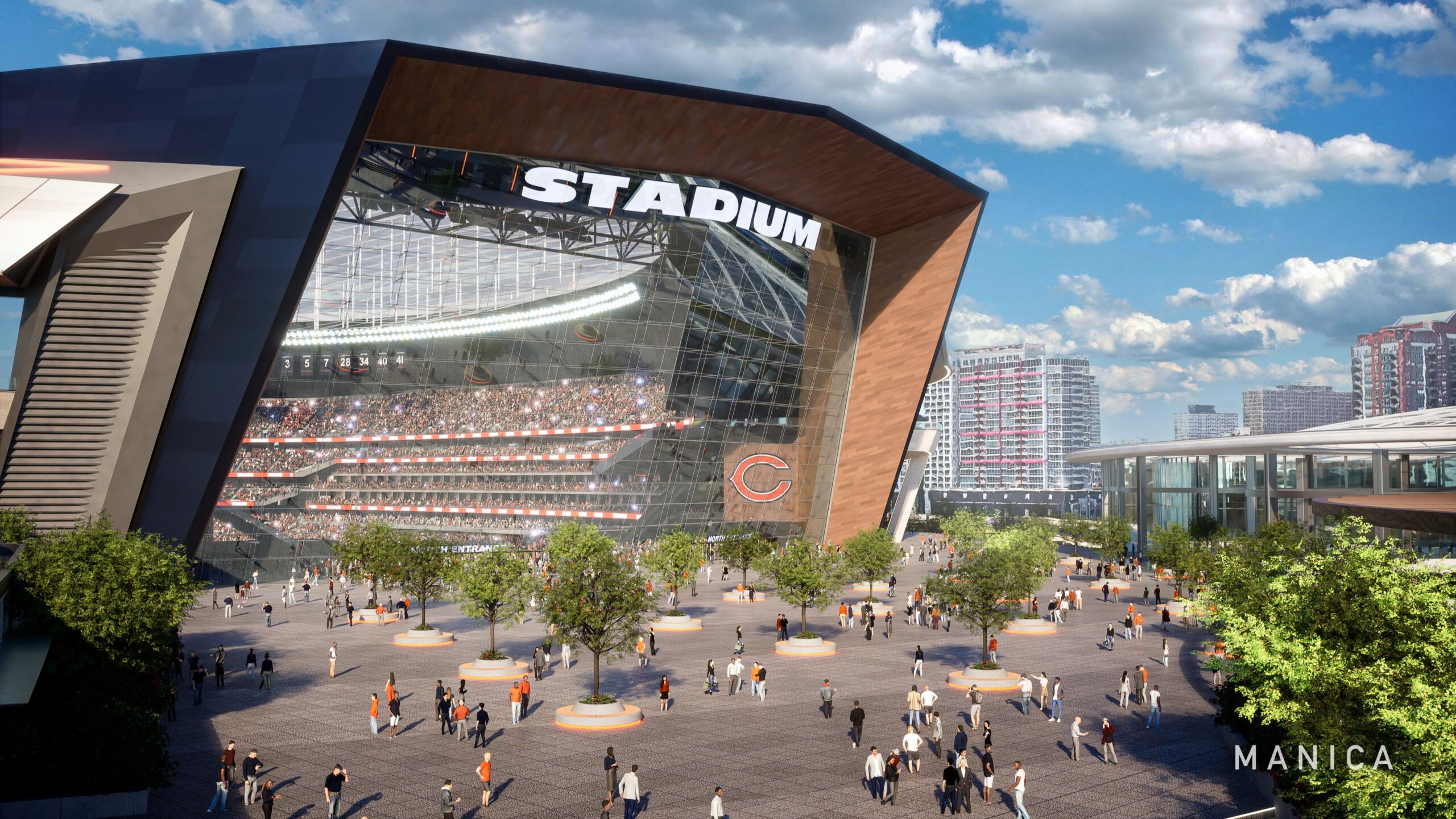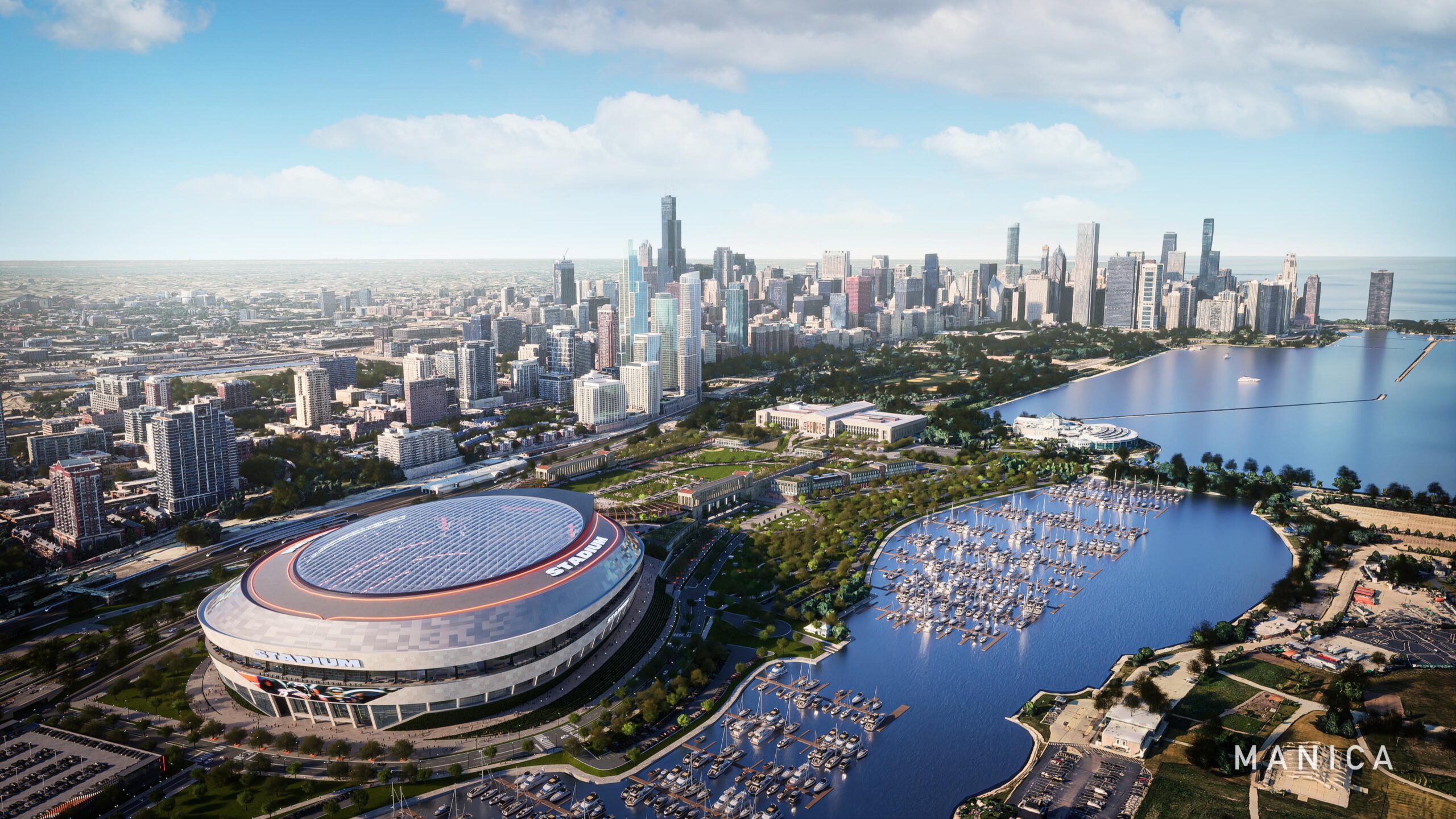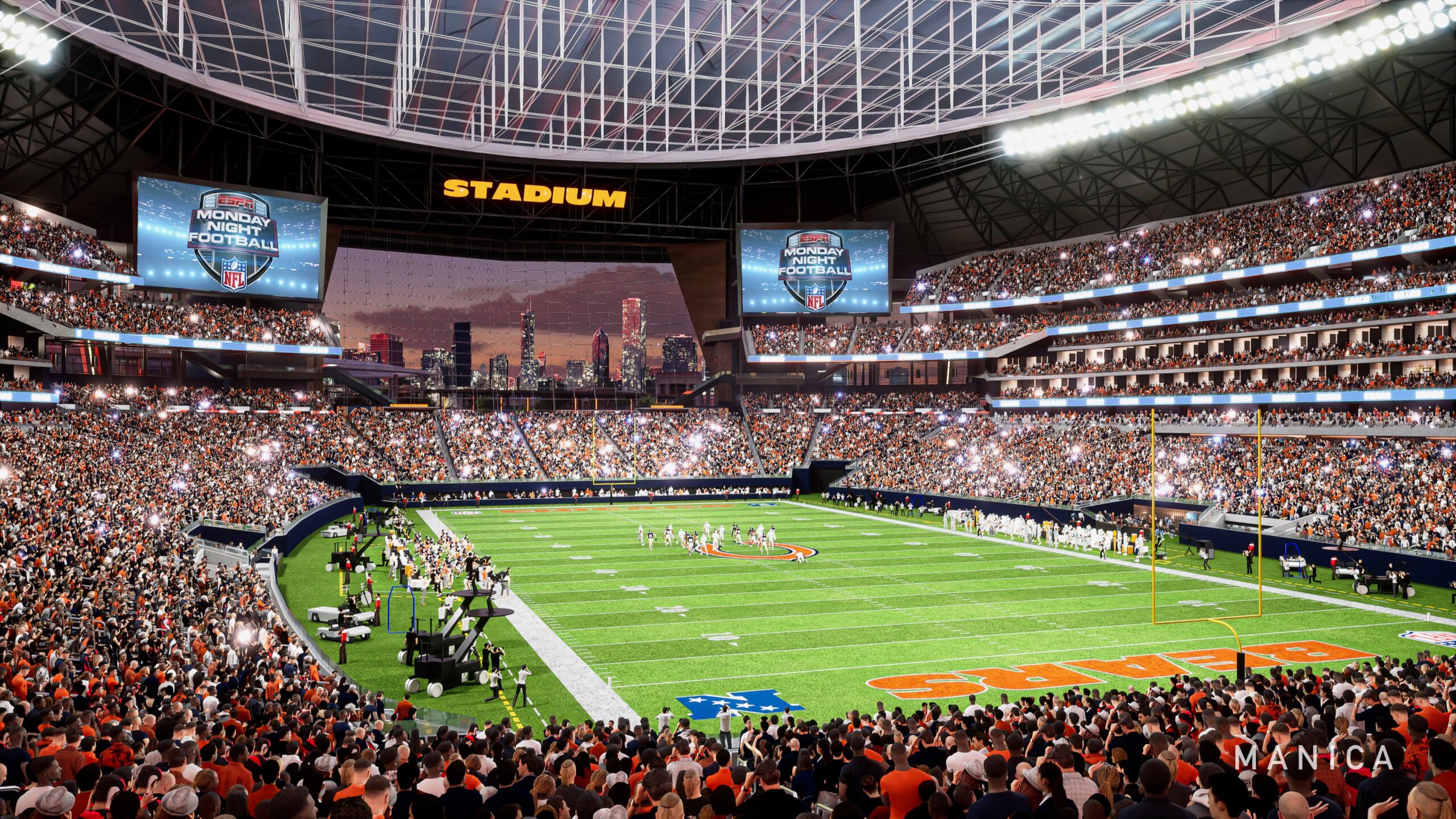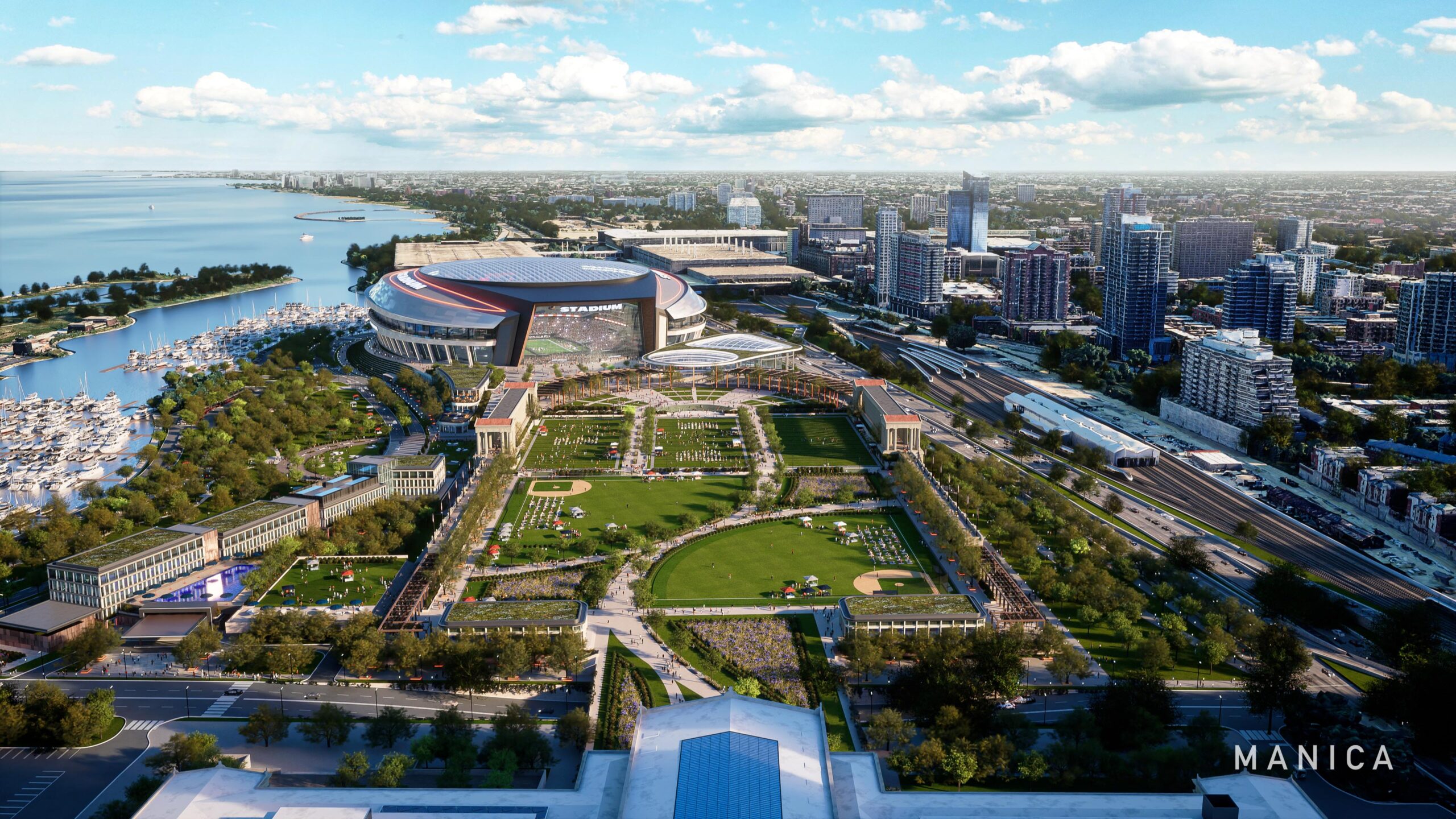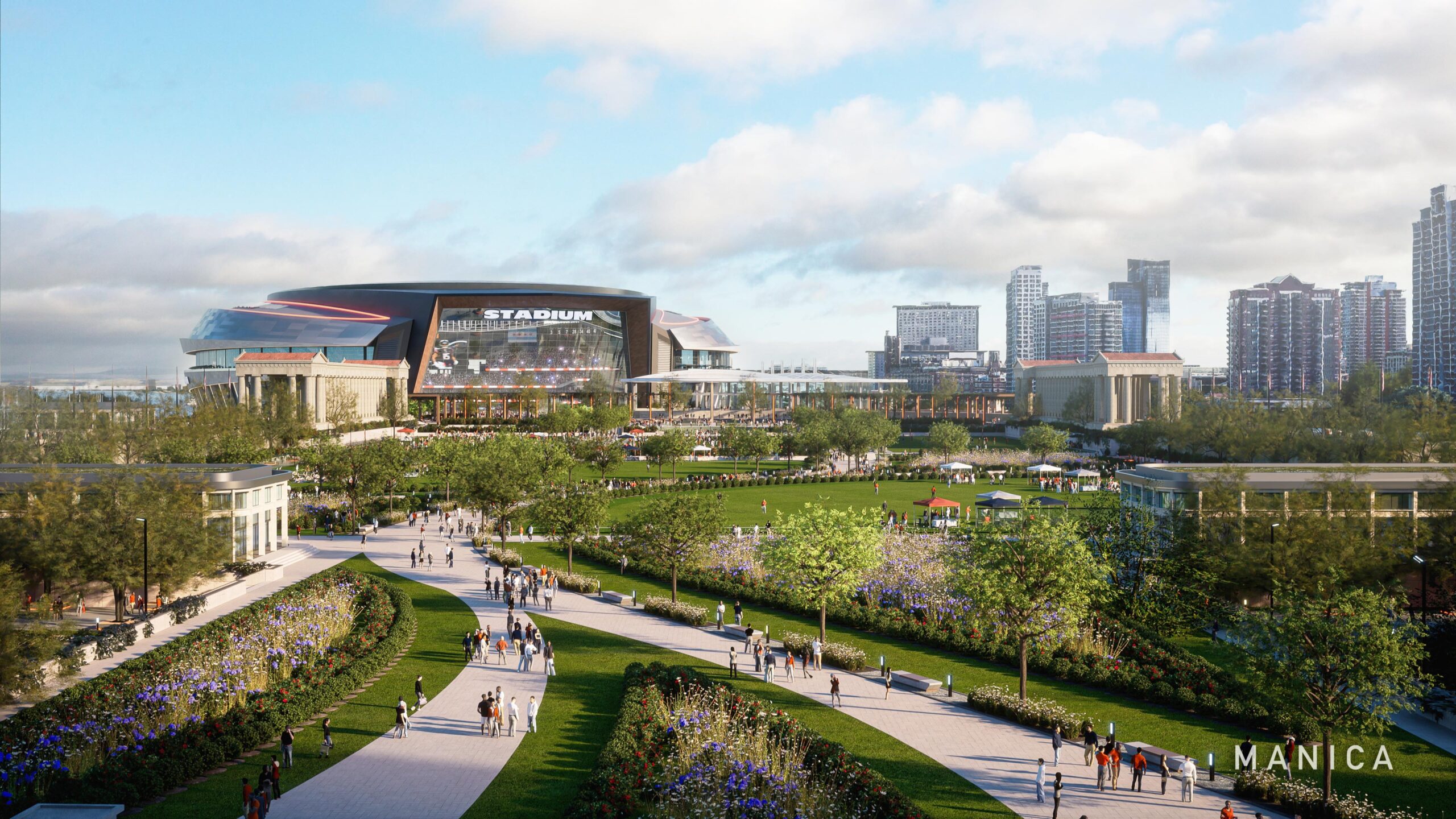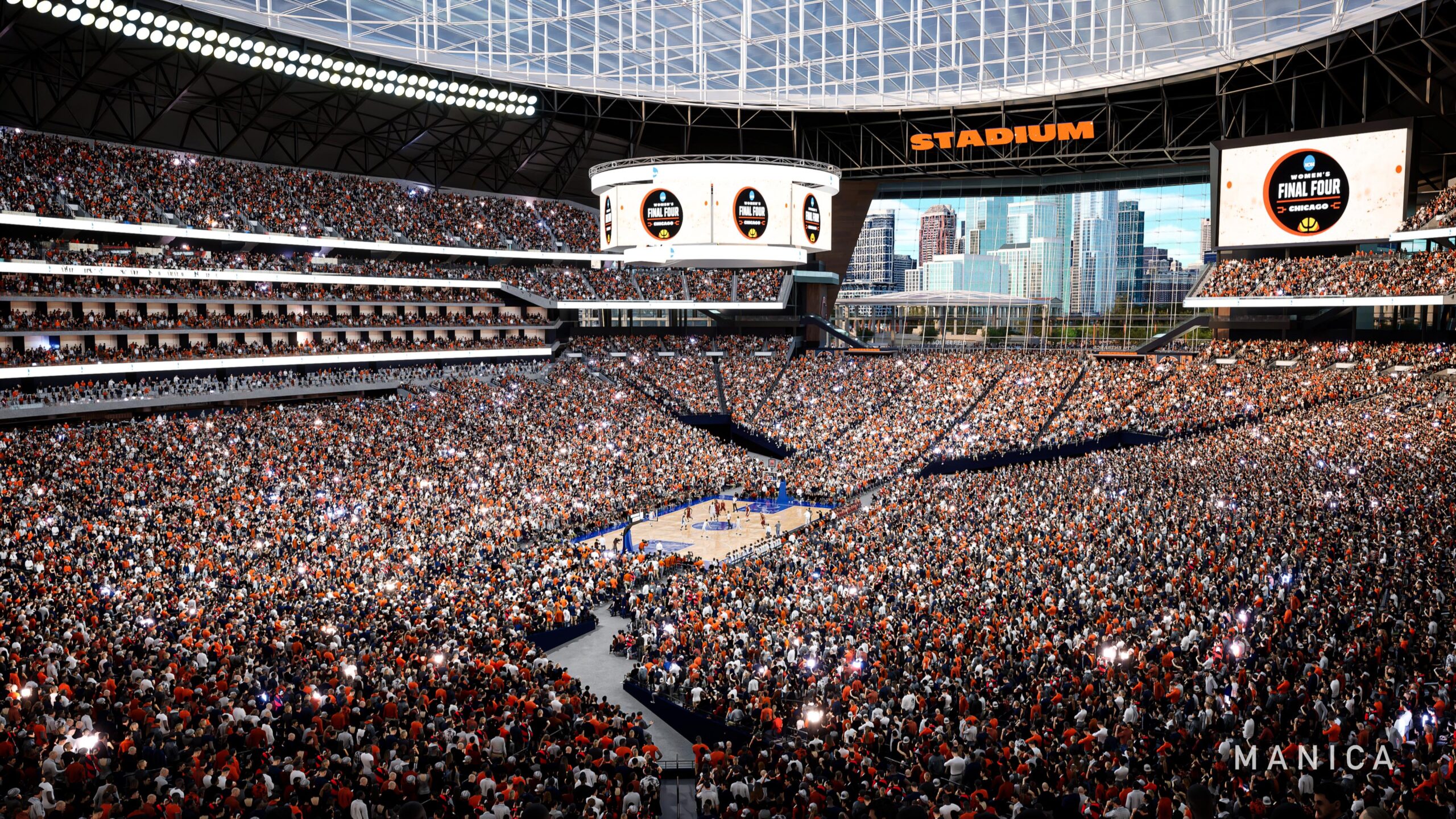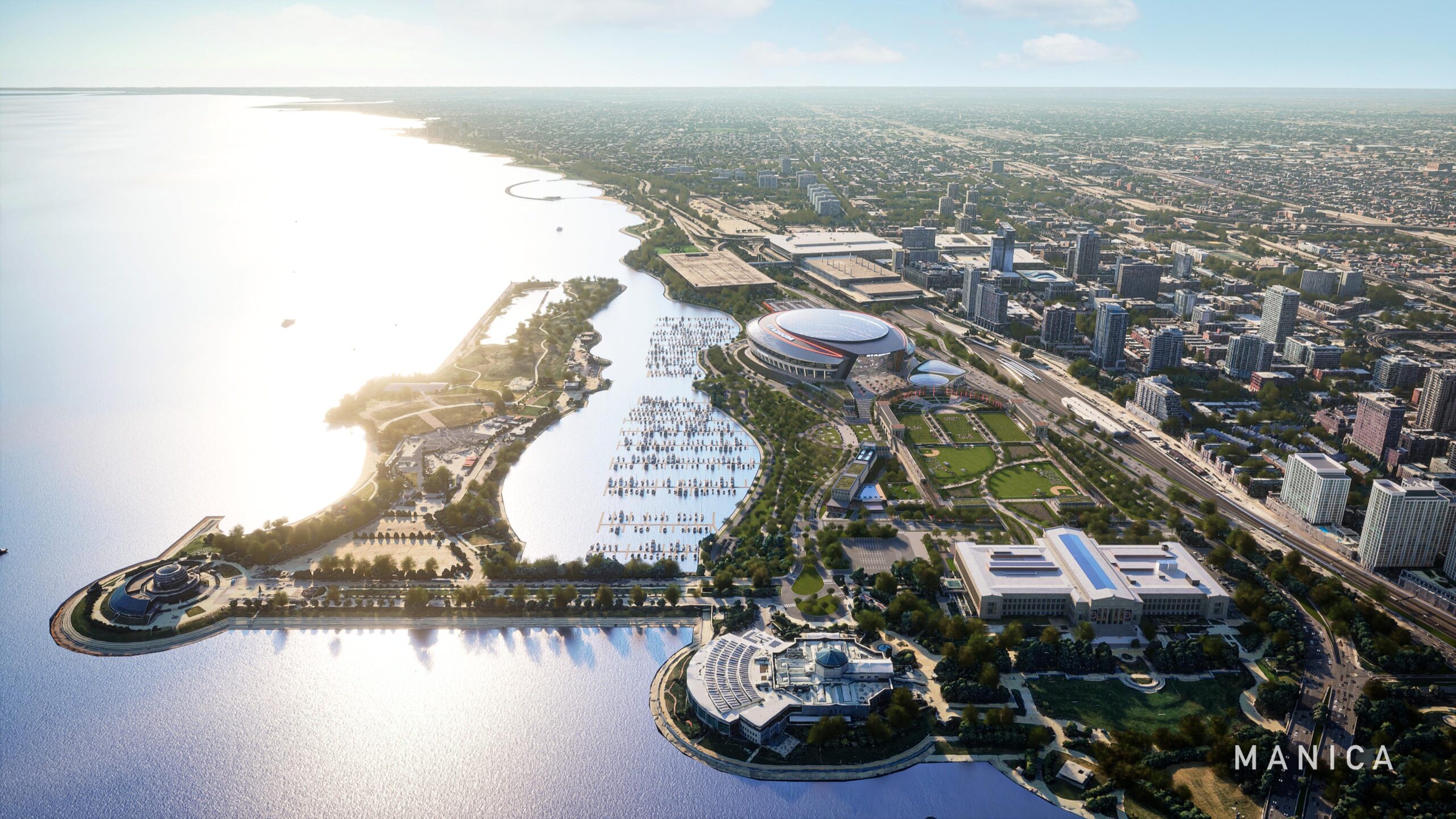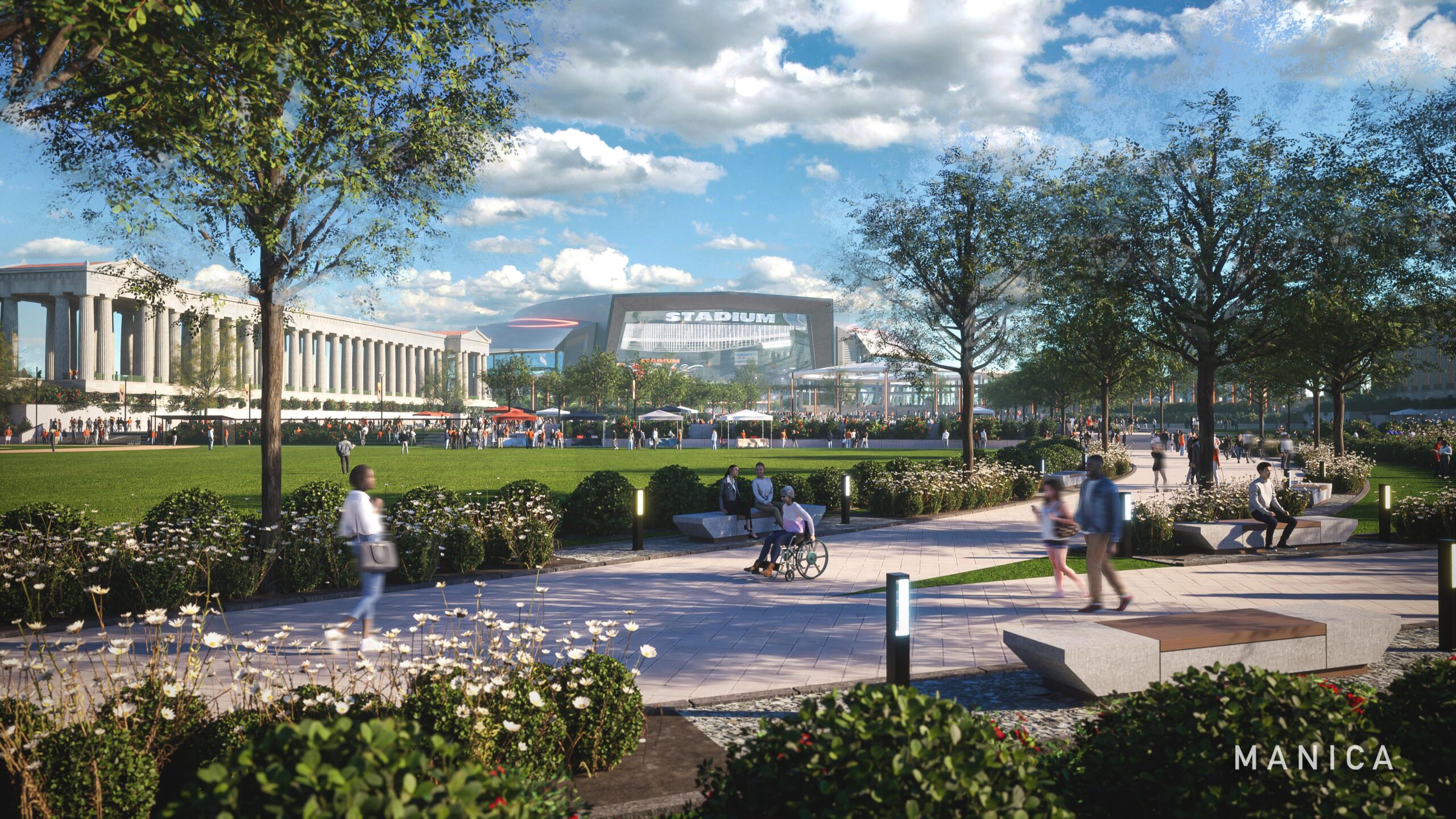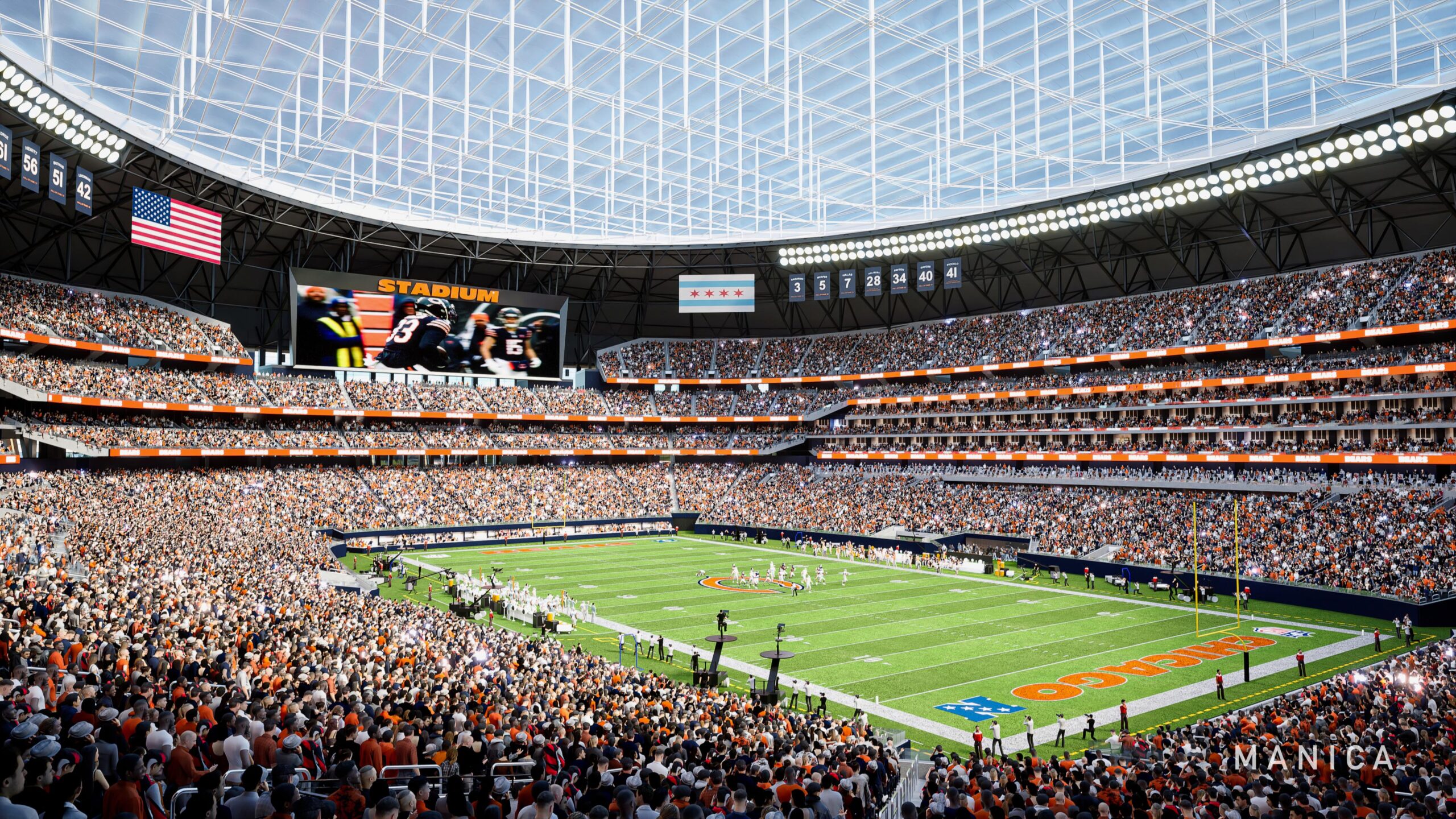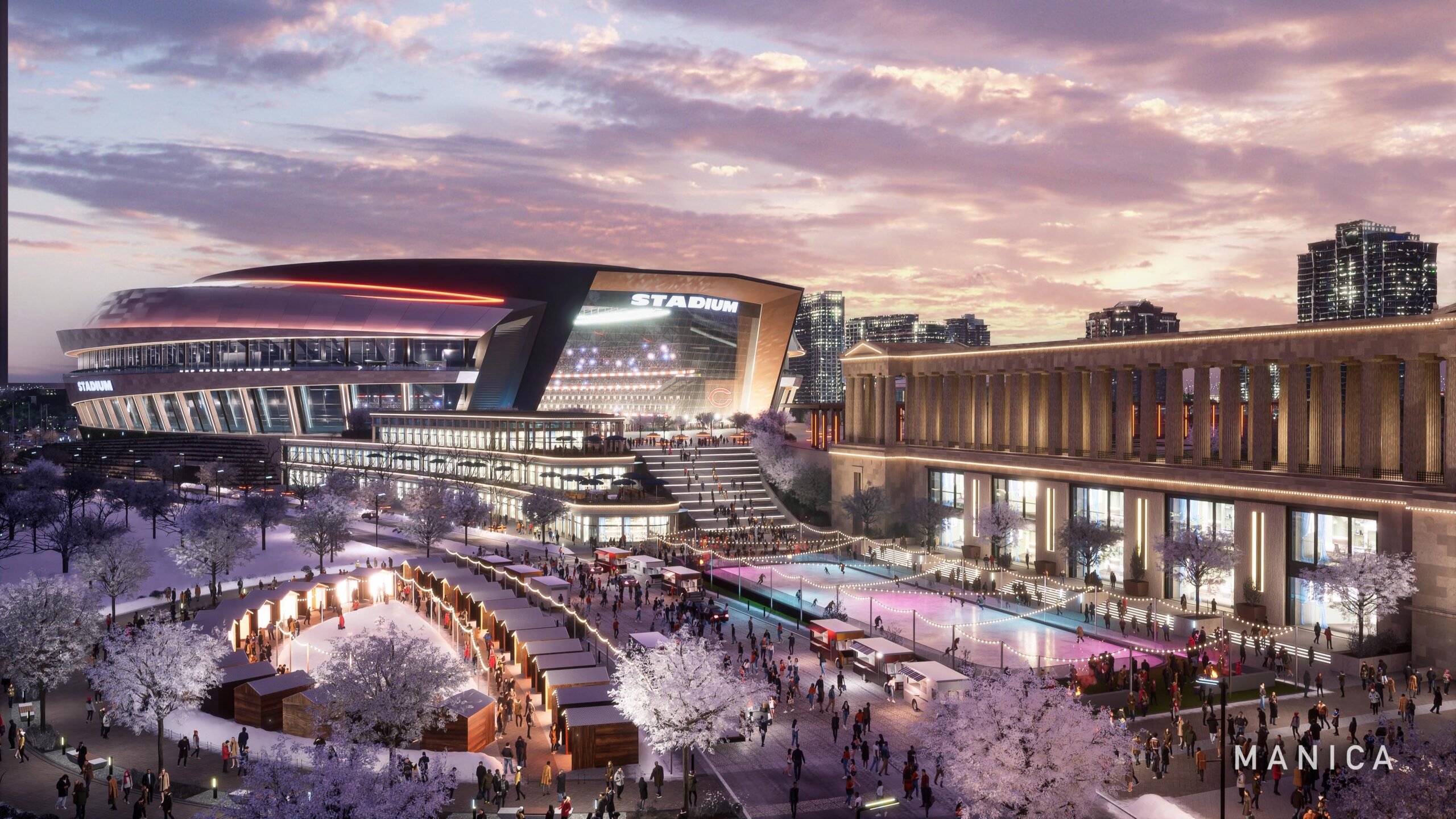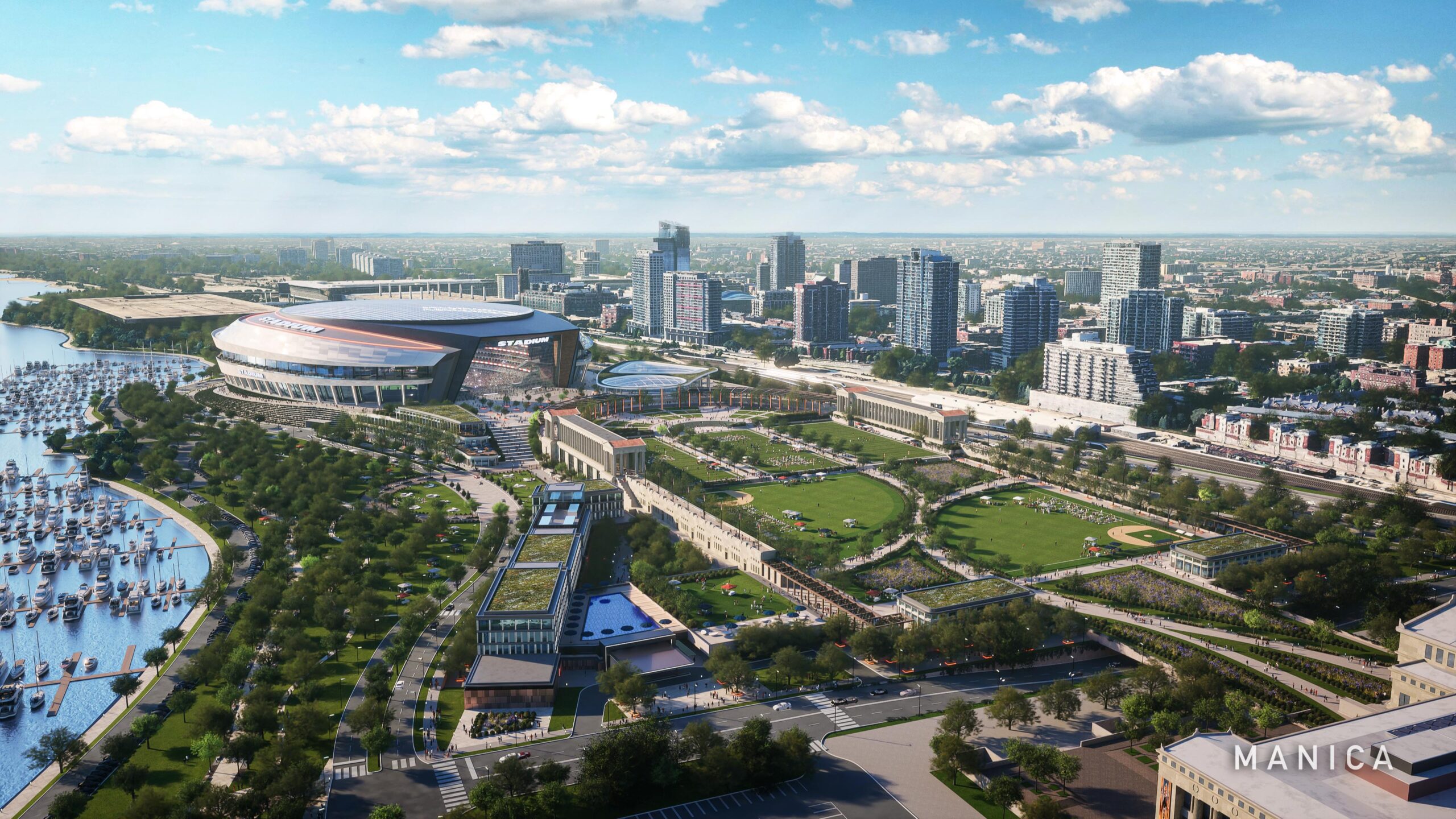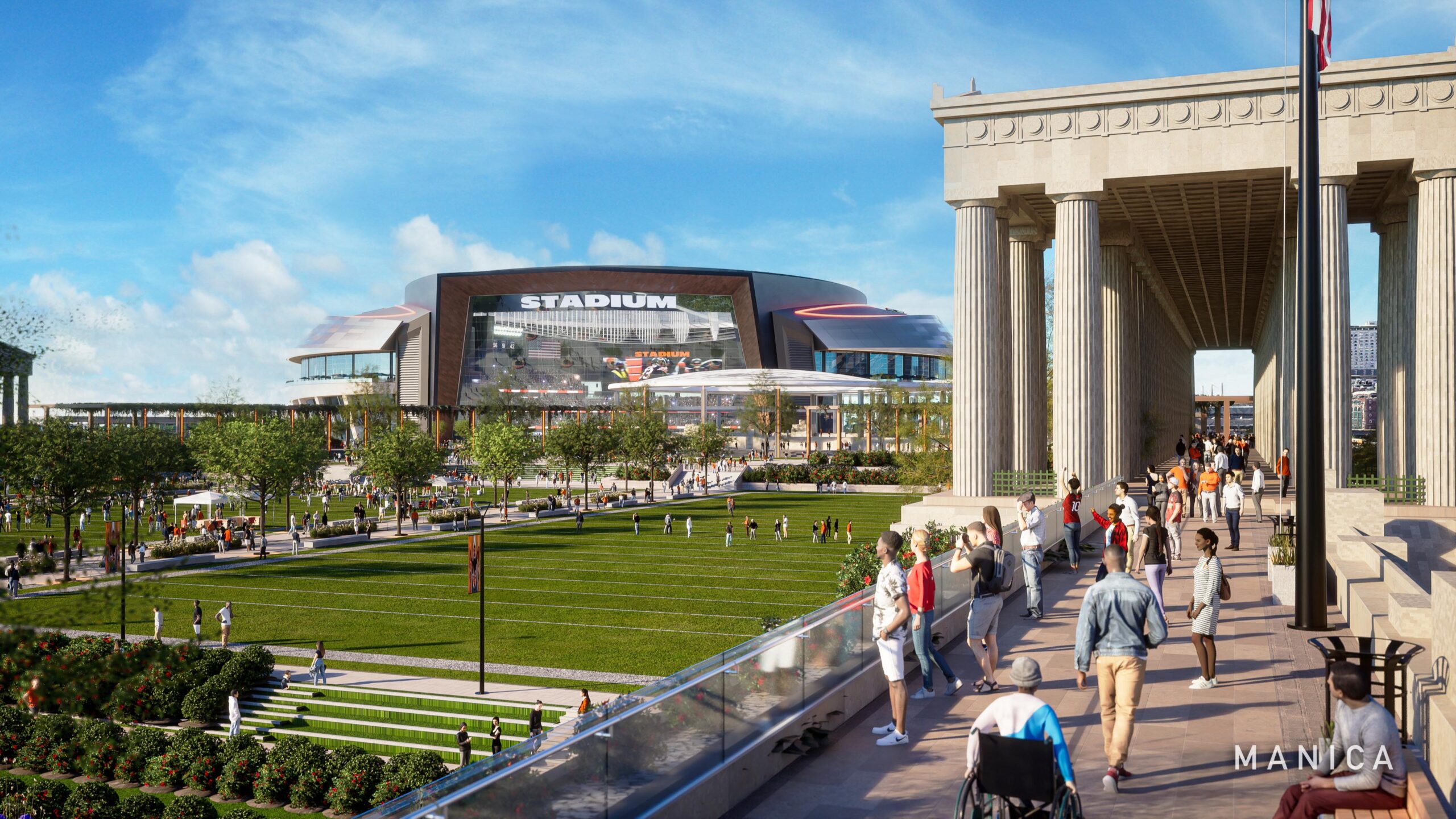On the eve of a football season that’s been billed as the beginning of a new era for the Chicago Bears, team President and CEO Kevin Warren continues to push for public financing for a new lakefront stadium for the charter NFL franchise despite ongoing skepticism from state officials who would have to approve a deal.
Warren, arguing a new domed stadium near where Soldier Field is located would be a boon both for the team and the city, largely stuck to a familiar script as he spoke Thursday evening in front of a group of Chicago business leaders.
Warren said the nearly $5 billion stadium project would create short-term construction jobs and long-term economic activity for the city. He reiterated his expectation the stadium also will enable the city the opportunity to host Super Bowls and NCAA Final Fours, among other high-profile events.
“If we can’t figure this out, Chicago, shame on us,” Warren said in a wide-ranging conversation with Conagra Brands President and CEO Sean Connolly before the Economic Club of Chicago.
At the same time, Warren continued to keep the door open, at least slightly, to the possibility the Bears could decamp for northwest suburban Arlington Heights, where the team last year spent $197.2 million to buy the former Arlington International Racecourse. Plans for a new stadium and mixed-use development there were in the works as Warren early last year was being brought on to lead the team, and he subsequently shifted the focus to rebuilding in Chicago.
But other than expressing a willingness to work with other pro sports teams that are in the market for public assistance to build new stadiums — including the Chicago White Sox and the Red Stars of the National Women’s Soccer League — to get a deal done, Warren did little during the hourlong Economic Club chat to indicate how he intends to convince state lawmakers and Democratic Gov. JB Pritzker to support the Bears’ request. The football team is seeking more than $2 billion in taxpayer money for the project as part of a proposed public-private partnership.
Pritzker told reporters in late July that there wasn’t “a proposal on the table right now that would be acceptable to anyone that I know in the legislature” and that it “would be near impossible” to get a deal done this year.
Those comments at an unrelated news conference came about two weeks after Pritzker and Warren met privately for the first time, a breakfast conversation the governor’s office described as “cordial” but one that did not change Pritzker’s position. The governor’s office did not respond Friday to a request for comment on the status of discussions with the Bears.
With lawmakers set to return to Springfield for six days after the Nov. 5 election, there’s been no outward sign the team has built sufficient support in the Democratic-controlled General Assembly to move its plan forward during the days remaining on this year’s legislative calendar.
The plan the Bears unveiled in April, with the full-throated support of Chicago Mayor Brandon Johnson, calls for the team to bring $2.3 billion in private financing to the table, including a $300 million stadium loan from the NFL, but the stadium itself is projected to cost $3.2 billion.
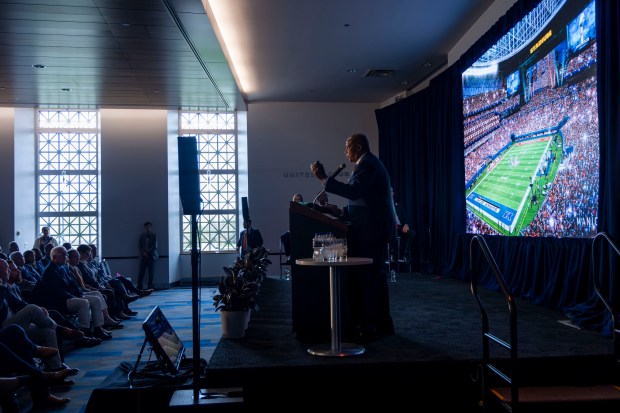
Warren told the Economic Club that he’s searched “tall and wide” but hasn’t found another instance where a private business invested as much money in a project that would be owned through a public-private partnership.
“It hasn’t happened,” he said.
To fill in the gap, the team wants the Illinois Sports Facilities Authority to issue $900 million in new bonds to cover the remaining stadium cost. Additionally, the team wants ISFA to refinance about $430 million in outstanding debt for previous projects at Soldier Field and Guaranteed Rate Field, where the White Sox play.
The Bears also want the state agency to borrow about $160 million more to set up a liquidity fund to cover future shortfalls in the 2% city hotel tax that’s dedicated to repaying the bonds. When those revenues fall short, as they have in recent years, the difference currently gets taken out of the city’s share of state income tax revenue.
Bears officials say the roughly $1.5 billion in new borrowing, which would require legislative approval, could be paid off over 40 years without raising the hotel tax. Including interest and other long-term costs, taxpayers would end up spending about $4.8 billion over four decades, according to ISFA.
The Bears’ proposal would leave little, if any, room for funding other stadium projects at a time when the White Sox also have looked to Springfield for help financing a new stadium at The 78, a proposed development along the Chicago River south of Roosevelt Road.
Some lawmakers, meanwhile, also have been pushing for any conversation regarding public funding for pro sports stadiums to include financing for women’s teams, such as the Red Stars, who currently rent space in suburban Bridgeview’s publicly funded SeatGeek Stadium.
On top of the borrowing to pay for a new Bears stadium itself, the team is looking for an additional $1.5 billion in public money for infrastructure improvements to the lakefront around the stadium site to fully realize the team’s vision, including plans to demolish most of Soldier Field and create more lakefront green space.
Before the business-friendly audience Thursday, Warren framed the team’s request as an investment rather than an expenditure of public dollars, noting that events such as a Super Bowl or major concerts would also generate business for the hospitality industry, along with the attendant tax revenue for the public coffers.
You can look at a proposal based on what you have to give up, “or you can look at it, ‘What can we invest to come together?’ ” Warren said. “This is truly one of those situations that one plus one will equal a hundred because if we don’t wrap our arms around some of these construction projects, we’re going to fall behind as a city, and we need to do more here in Chicago.”
Economists generally disagree with the proposition public funding of professional sports stadiums provides enough economic benefit to make it a worthwhile use of tax revenue.
Warren also indicated the team continues to have conversations with government officials in Arlington Heights, where development of the former horse racetrack has been mired in a property tax dispute with local school districts.
“The biggest thing is that we need to figure out the tax situation. … We just need to make sure we get our arms wrapped around it, but we still remain the largest landowner in Arlington Heights and are fortunate that we have a fantastic piece of property,” Warren said.
Some opponents of the plan for a new stadium in Chicago have argued the Bears could more easily redevelop the 326-acre property in Arlington Heights, though the team also had sought help from Springfield for that proposal before turning its attention to the lakefront.
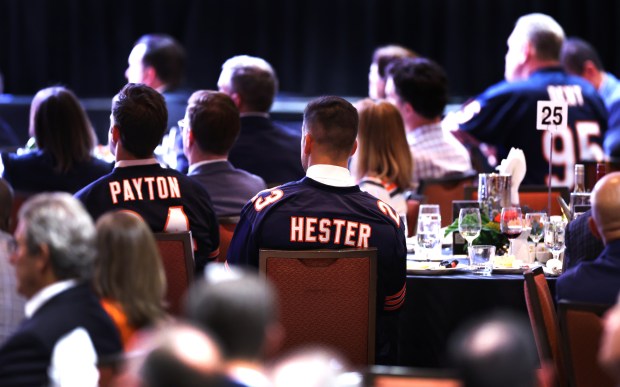
Warren’s Economic Club appearance was another part of a public relations blitz for the team since unveiling its stadium plan and drafting Caleb Williams as quarterback with the top overall pick in April. Williams is making his regular season debut Sunday.
Most prominently, the team was featured for the first time this summer on the HBO series “Hard Knocks,” which gives fans a peek inside an NFL team’s training camp.
While the series focused largely on the development of Williams and other on-field talent, one brief segment highlighted the stadium plans, with narrator Liev Schreiber saying, “It’s time for a new stadium to coincide with a new era of Bears football.”
The episode then segues from architectural renderings to Warren and other Bears executives around a conference table, discussing what kind of seats should be installed in field suites in a hypothetical stadium for which the team has yet to secure financing.
At the Economic Club, Warren declined to give a deadline for when a stadium deal needs to get done after saying in April that there was urgency for it to happen during the legislature’s spring session, which adjourned a month later without any action.
When Conagra’s Connolly asked for a “drop-dead date” for reaching a deal, Warren replied: “Drop-dead date? I would say when we cut that ribbon.”


